Case Study
Dirt Oil Contamination in Hydraulic Power Press at automotive components industry
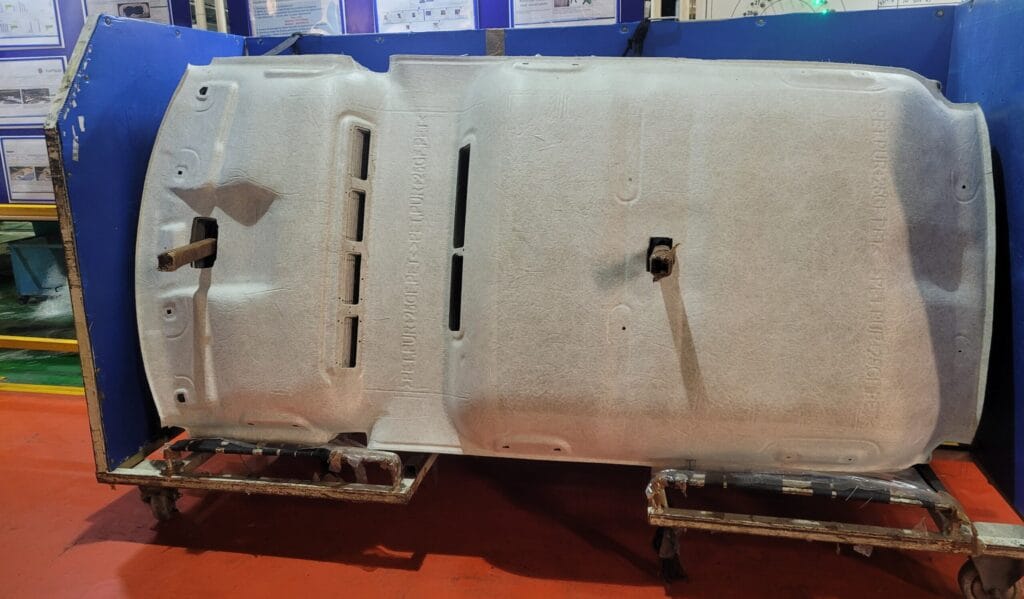
Location: North India
Product Installed: Oil Filtration Machine
Application Background
Automotive components industry is a major player in the automotive components industry, providing interior parts such as dashboards, door panels, and roof linings to leading car manufacturers like Maruti. The company employs advanced manufacturing techniques, including hydraulic power presses, to shape, mold, and assemble these parts efficiently. These presses rely on hydraulic fluid to generate the force needed for operations like metal stamping and plastic molding..
One of the key issues encountered in the operation of hydraulic systems is the contamination of hydraulic oil. Dirt and other impurities in the hydraulic oil can cause serious operational problems, leading to machine failures, downtime, and increased maintenance costs. This case study discusses a specific incident at Plant, where dirt contamination in the hydraulic oil of power presses led to several operational challenges and the corrective actions taken to address the issue.
Problem Identification:
In automotive components industry production facility, hydraulic power presses are integral to the manufacturing process. Over time, the company noticed a recurring issue where the machines began showing signs of poor performance, such as:
- Reduced press force: The hydraulic presses were unable to apply the required pressure consistently, resulting in under-formed or incomplete parts.
- Frequent breakdowns: Increased frequency of mechanical failures and breakdowns of hydraulic components, such as pumps, valves, and cylinders.
- Increased maintenance costs: Unscheduled maintenance required frequent oil changes and repairs.
- Noise and overheating: Hydraulic systems started producing more noise than usual, accompanied by higher-than-normal operating temperatures.
After conducting an investigation, the root cause was traced to dirt contamination in the hydraulic oil, which had accumulated due to a combination of factors, including improper maintenance, inadequate filtration, and exposure to external contaminants.
Causes of Dirt Contamination:
- Inadequate Filtration System: The filtration systems in the hydraulic machines were not capable of effectively removing microscopic contaminants from the oil, allowing dirt particles to accumulate over time.
- Improper Handling of Hydraulic Oil: In some instances, hydraulic oil was improperly stored and handled during refills and changes. This led to the introduction of dirt and other contaminants during these processes.
- External Contamination: Dust and dirt from the manufacturing environment, especially in areas with heavy machinery and production lines, were entering the hydraulic system due to improper sealing and unclean conditions around the press machines.
- Old and Degraded Oil: Over time, the oil had broken down, reducing its viscosity and cleaning properties, making it more susceptible to the buildup of contaminants.
Impact of Dirt Oil Contamination:
- Decreased Efficiency: The contaminated oil caused erratic machine behavior, such as uneven movement of the hydraulic ram, leading to delays in production and higher defect rates.
- Component Wear and Tear: Dirt particles acted like abrasives, accelerating the wear and tear of critical components such as hydraulic pumps, seals, and valves. This led to more frequent component failures and increased downtime.
- Increased Costs: Due to the frequent breakdowns, the company had to allocate additional resources to maintenance, spare parts, and unplanned downtime, leading to higher operational costs.
- Production Delays: With hydraulic presses failing more often, the production line had to slow down, delaying the delivery of parts to clients, which affected Company relationships with its customers.
Solution Implemented:
To address the issue of dirt contamination in the hydraulic oil, automotive components industry took a multi-pronged approach:
- Destiny’s Upgrading Filtration Systems: The company upgraded the filtration systems on all hydraulic power presses. High-efficiency filters capable of trapping even the smallest dirt particles were installed to prevent contamination from entering the hydraulic fluid. These filters were also equipped with alarms to indicate when they needed to be cleaned or replaced.
- Oil Monitoring and Testing: Company introduced regular oil testing procedures to monitor the condition of the hydraulic fluid. Tests for dirt content, viscosity, and water contamination were conducted at regular intervals to catch contamination early.
- Training and Standard Operating Procedures (SOPs): Operators were trained on best practices for handling hydraulic oil, including proper refilling techniques, regular cleaning of oil tanks, and maintaining the sealing systems to prevent contaminants from entering the system.
- Oil Replacement and System Flush: The hydraulic oil in the affected presses was completely replaced, and the systems were thoroughly flushed to remove any residual contaminants. New, high-quality oil was used to ensure optimal performance.
- Environmental Cleanliness: To reduce external contamination, company improved the cleanliness of the production floor by ensuring that work areas around the hydraulic presses were regularly cleaned and sealed.
- Regular Maintenance and Monitoring: A preventive maintenance schedule was implemented, including periodic checks of hydraulic systems for leaks, wear, and oil contamination. Additionally, real-time monitoring systems were installed to track the temperature, pressure, and oil condition of each press.
Results & Benefits :
After implementing Destiny’s corrective actions, Company experienced significant improvements:
- Improved Performance: The hydraulic presses returned to optimal performance levels, delivering consistent press force and reducing the incidence of part defects.
- Reduced Downtime: With fewer breakdowns and less frequent need for repairs, the overall downtime in the production line was significantly reduced.
- Cost Savings: The company saw a marked decrease in maintenance costs and the need for spare parts. More efficient hydraulic systems also contributed to energy savings, as the pumps no longer had to work as hard to compensate for contamination-related issues.
- Enhanced Product Quality: The reduction in defects and improved machine consistency ensured that the interior components manufactured for Maruti Suzuki met the high-quality standards expected.
- Stronger Customer Relationships: With increased reliability and timely deliveries, company was able to strengthen its relationship with clients, particularly Maruti Suzuki, leading to more orders and long-term business agreements.
Impact of Dirt Oil Contamination:
- Decreased Efficiency: The contaminated oil caused erratic machine behavior, such as uneven movement of the hydraulic ram, leading to delays in production and higher defect rates.
- Component Wear and Tear: Dirt particles acted like abrasives, accelerating the wear and tear of critical components such as hydraulic pumps, seals, and valves. This led to more frequent component failures and increased downtime.
- Increased Costs: Due to the frequent breakdowns, the company had to allocate additional resources to maintenance, spare parts, and unplanned downtime, leading to higher operational costs.
- Production Delays: With hydraulic presses failing more often, the production line had to slow down, delaying the delivery of parts to clients, which affected Company relationships with its customers.
Destiny’s Ultra-Fine Oil Filtration Machine Installation:
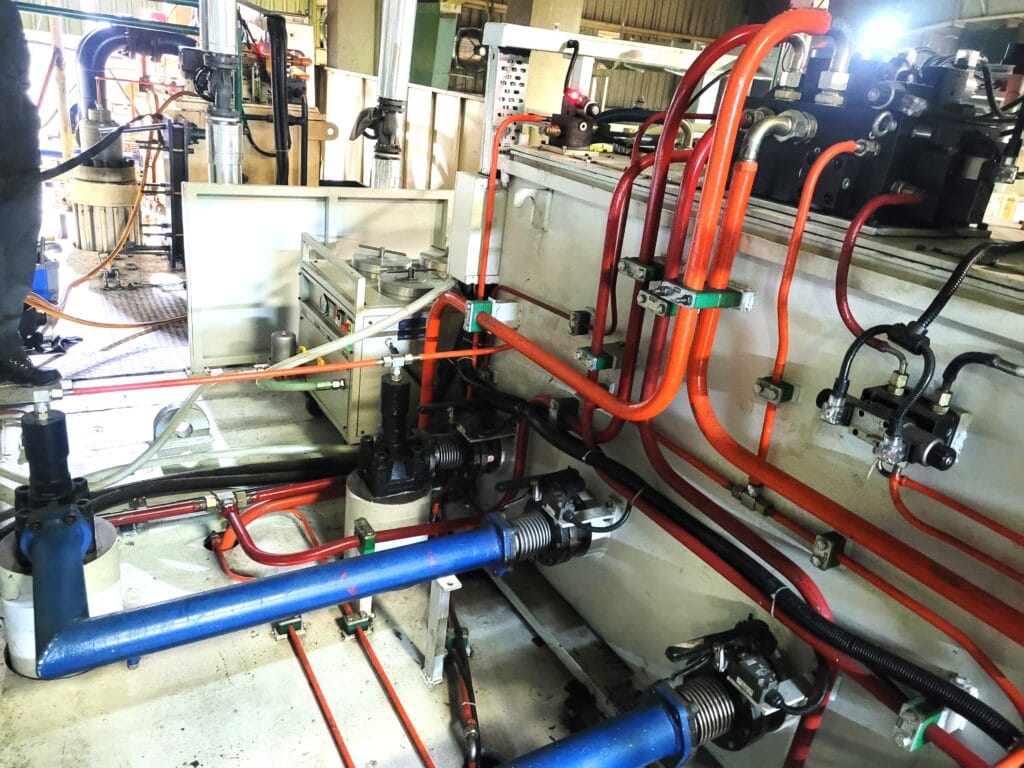
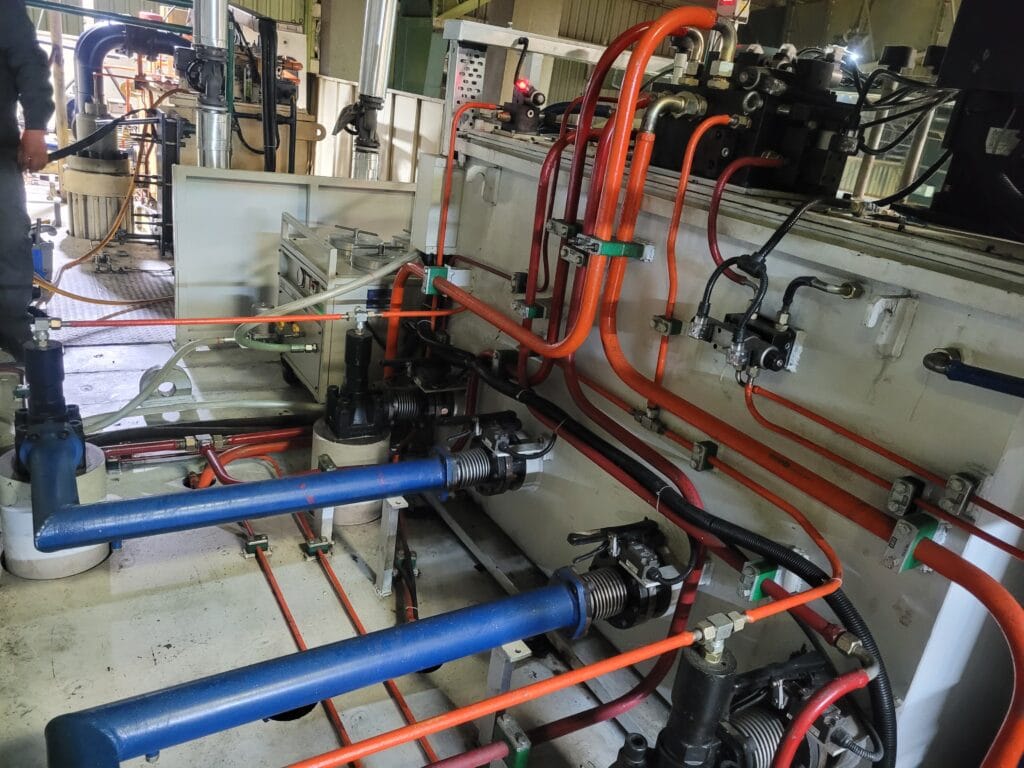
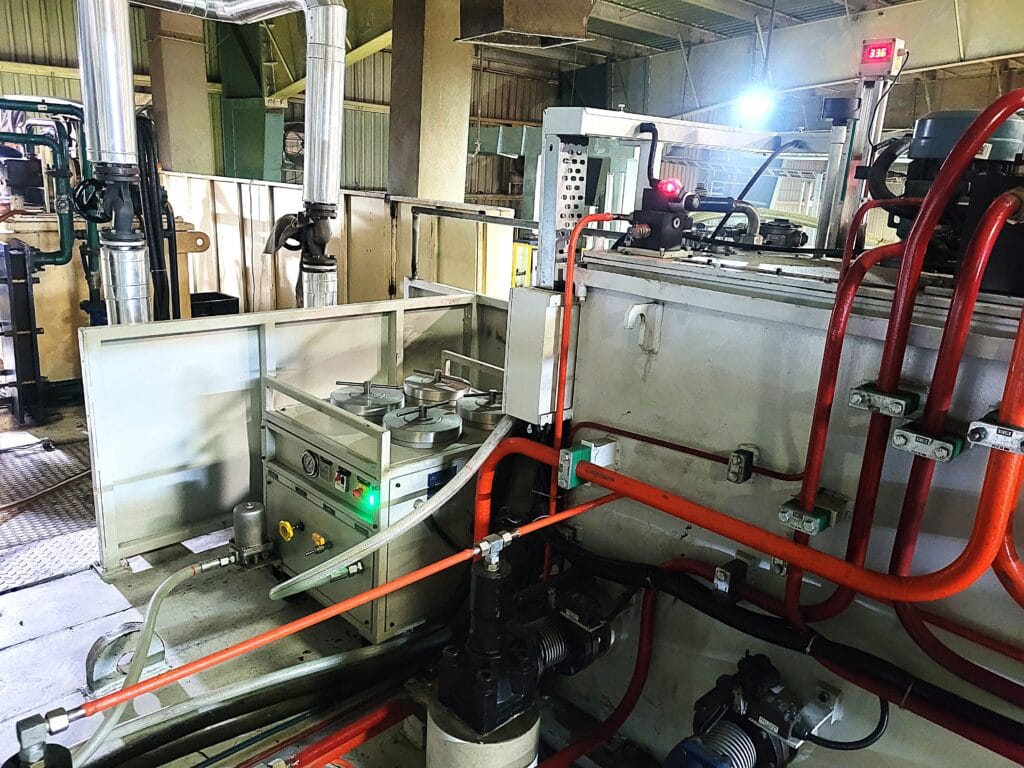
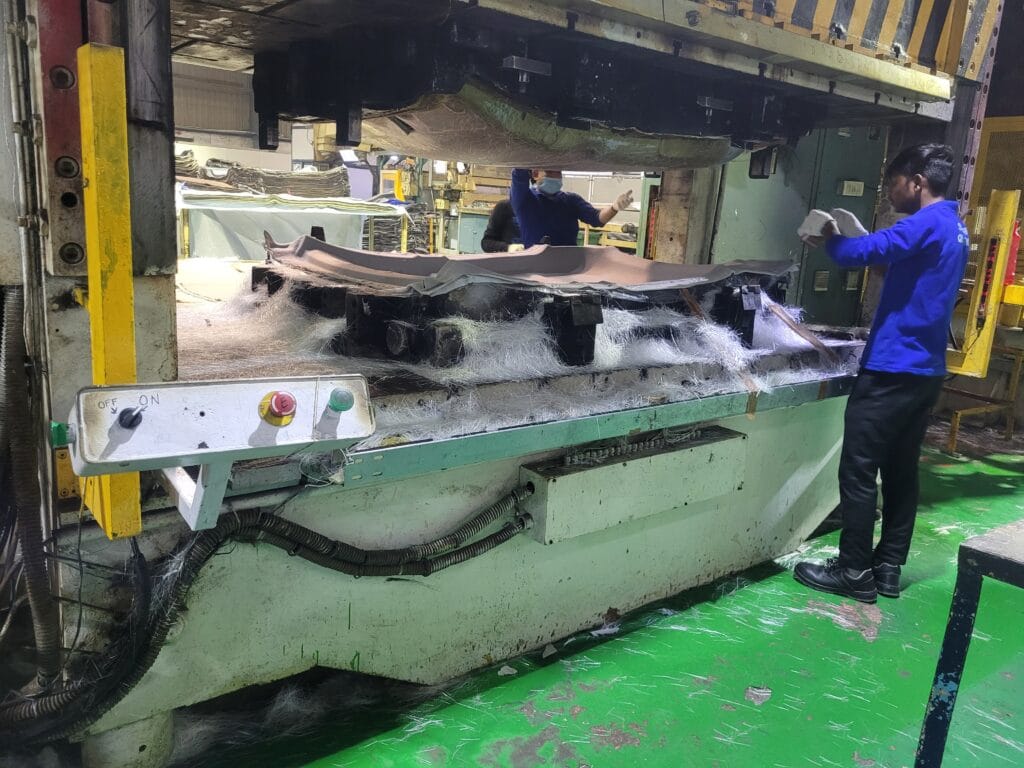
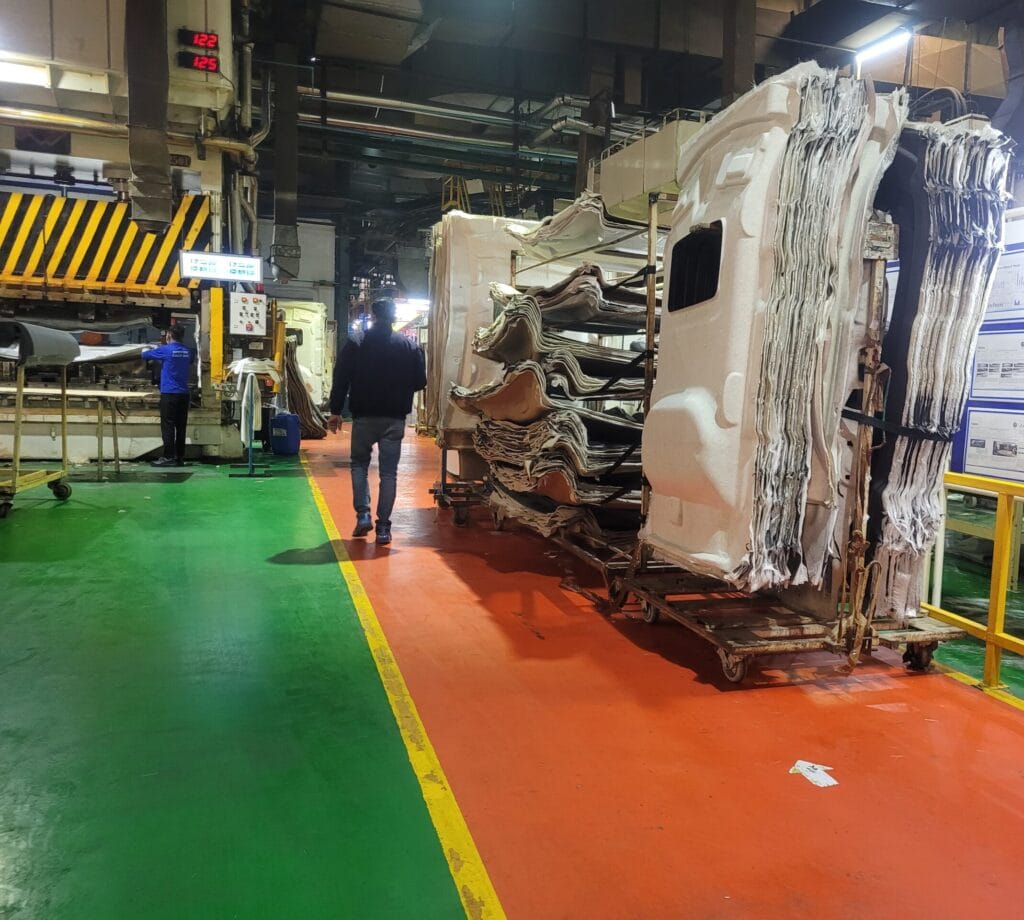

Destiny’s® Ultra-Fine Oil Filtration Machine :
Our Oil Filtration Machine is a multi-purpose fluid cleaning machine that can clean most oils such as hydraulic oil, gear oil and many soluble oils and fluids. More than 85% of hydraulic oil failures are caused by contaminants in the oil.
Struggling with oil contamination in your hydraulic press?
100% Guaranteed Clean Oil
